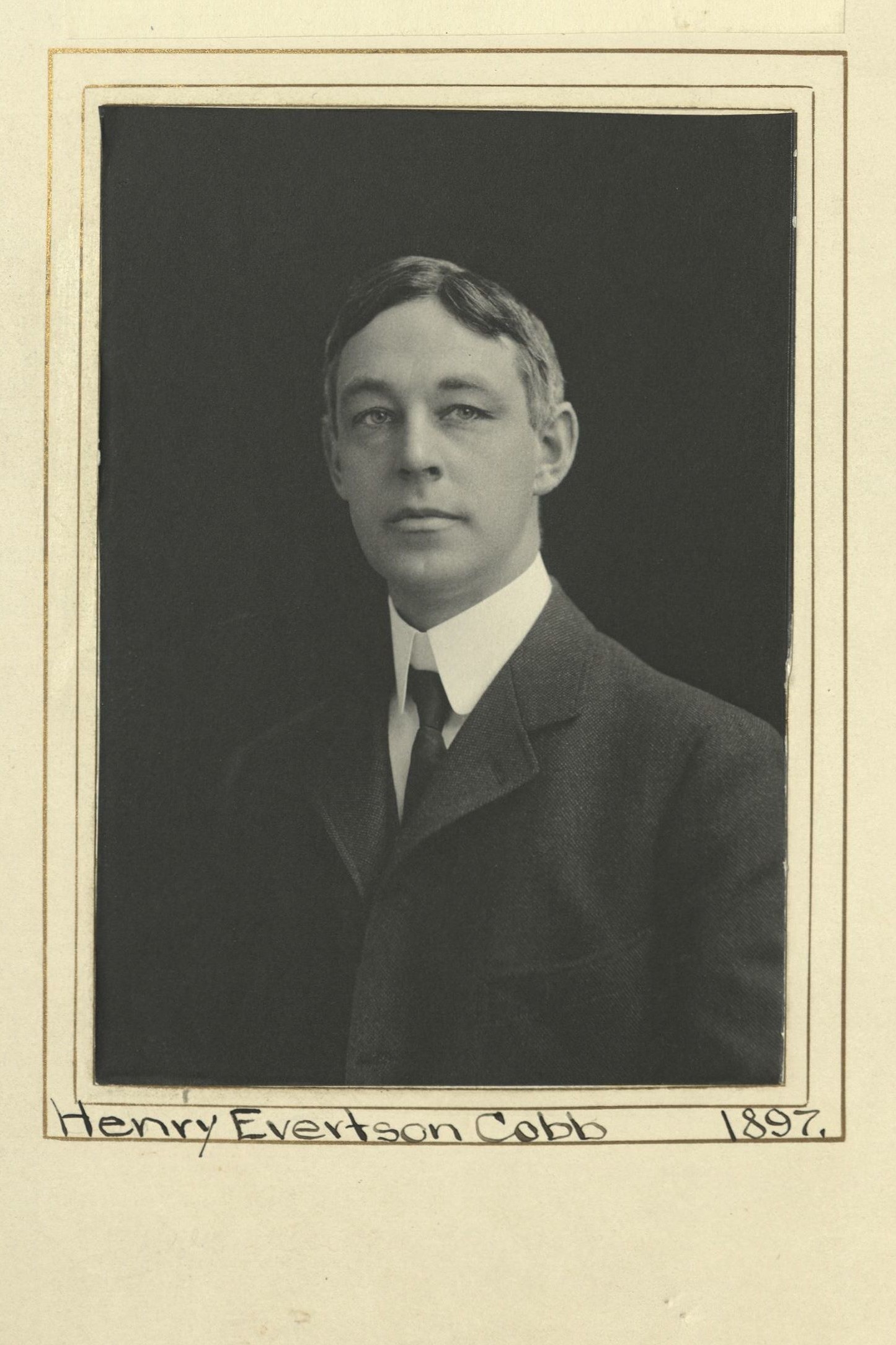Clergyman
Centurion, 1897–1943
Born 25 March 1863 in Hopewell, New York
Died 15 August 1943 in Norwalk, Connecticut
Buried Sleepy Hollow Cemetery , Sleepy Hollow, New York
, Sleepy Hollow, New York
Proposed by Frederick R. Hutton and Joseph R. Duryee
Elected 1 May 1897 at age thirty-four
Seconder of:
Century Memorial
The first thing that struck you when you met Henry Evertson Cobb was his size, for he was over six feet four and strongly built, with a regal straightness in his bearing. The next thing was his friendly cordiality; he liked people and expected well of them and they sensed it instantly. He loved to tell good stories, and loved just as well to hear them; Centurions who sat next to him at the long table will remember his bending intently to catch every word, and when the point of the story came, throwing his head back with a shout of laughter while he rubbed his hands together in a gesture of boyish glee that never left him all his life long. What you noticed next about him, perhaps, and certainly came to admire in him if you knew him well enough, was his genuineness. There was no trace of cant in him whatever. Whether in the pulpit, or by the bedside of a sick parishioner, or at the Club dinner table, he put on no airs, said nothing for effect, spoke what he meant. There was a sort of innocence about him—an innocence all the more appealing because it radiated from a man of such majestic size and demeanor.
It may have surprised some of his boyhood friends that he entered the ministry, for in school and college he had been a great one for mischievous pranks—such as wiring up the doors of the room in which the Rutgers faculty were meeting—but it was a choice that came from the center of his being. As a minister of the Reformed Church he served briefly in West Troy, but moved to New York in 1893 to be for the next thirty-eight years the pastor of the West End Collegiate Church. This was in one respect a discouraging assignment, for the Protestant exodus from the West Side took family after family away from his parish; yet though he was neither a great preacher nor a super-organizer, his strength and sweetness of character were so transparently manifest, his relations with his congregation were so mutually happy, and his personal stature was so commanding, that he was recognized as one of the real religious leaders of the city. In 1927 he became senior minister of the Reformed Church in New York, with duties similar to those of a bishop; and after his retirement from the West End pastorate in 1931 he continued with these duties until, on August 15, 1943, his heart gave out and he died at the age of eighty.
The scope of his influence outside the Reformed Church is suggested by the fact that he was a trustee of Vassar College and for ten years chairman of the board, a trustee of Rutgers, a director of the Union Theological Seminary, a member of the board of managers of the Presbyterian Hospital, and president or trustee of several other educational or charitable institutions.
He served on the Board of Trustees of the Club in 1910 and 1911, and on the Committee on Admissions in 1928–30. The Club meant much to him; and because he was the sort of man who had only to walk into a room to make everybody like him and want to be on his side, he meant much to the Club.
Cobb’s high reputation was not based upon any striking intellectual originality. His sermons impressed one less by their substance than by their reflection of the purity of his faith and the magnanimity of his heart. The best of them, some of his friends thought, were the very short sermons for children which he used to preach midway of the morning service: in these his simplicity and tenderness touched the essential child in every hearer, young or old. It was in personal relations that he especially shone. Those who knew him best, in triumph and in tragedy alike, wondered at his selflessness, his depth of feeling, and his fortitude. He was a giant of a man, in body and in spirit.
Geoffrey Parsons
1943 Century Memorials

